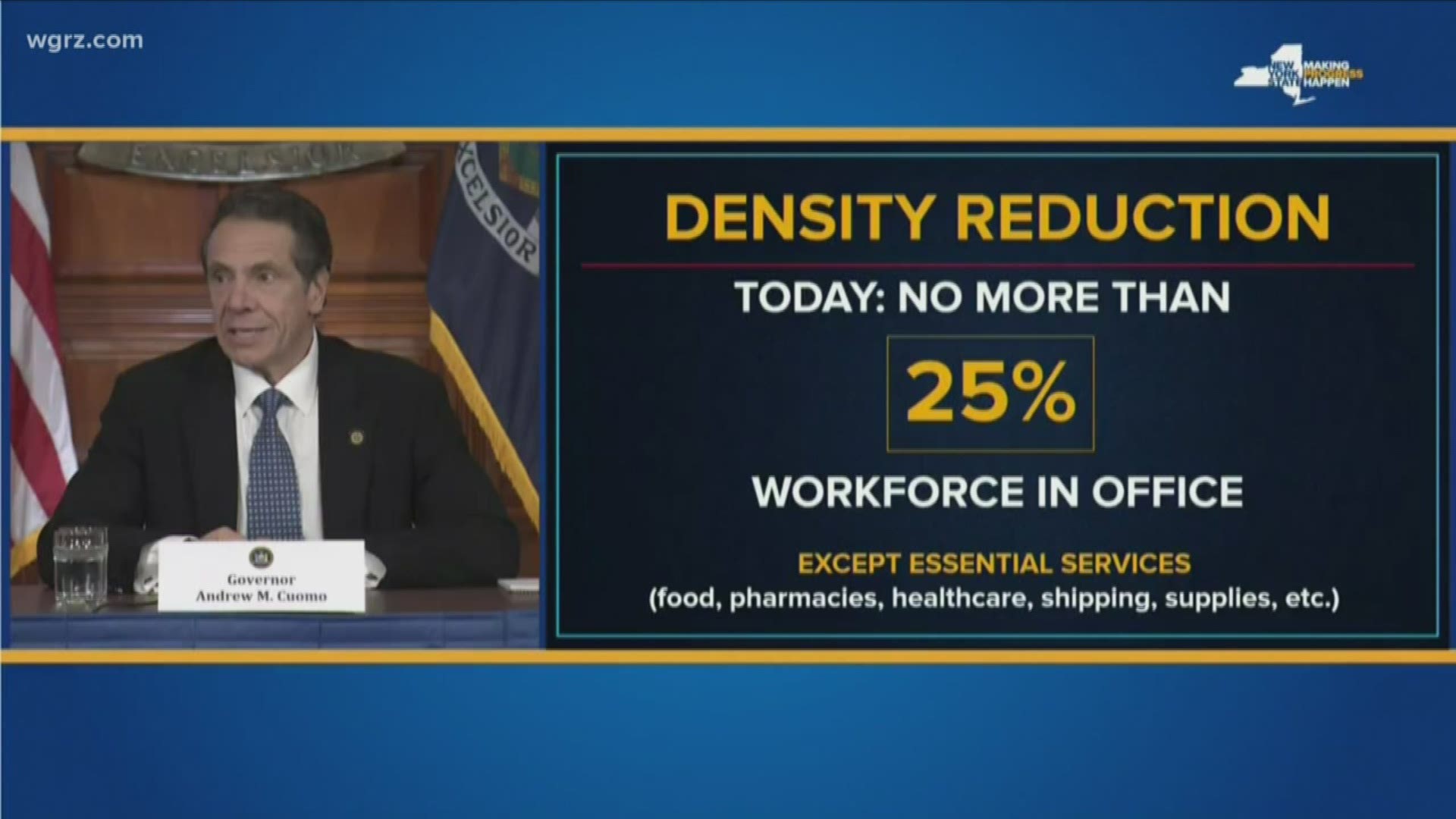ALBANY, N.Y. — New York Governor Andrew Cuomo announced Thursday, that 75% of the workforce must work from home in an effort to reduce the spread of coronavirus (COVID-19).
This order excluded essential services like: food, pharmacies, healthcare, shipping, supplies, etc).
About 22,000 people in NYS have been tested so far. The hospitalization rate dropped to 19% with 777 of the 4,152 cases hospitalized.
The state is also looking for more ventilators to meet the anticipated demand as more people test positive for COVID-19.
Currently, NYS has about 5,000 to 6,000 ventilators, but believe they will need about 30,000, according to Cuomo. Cuomo is calling on the federal government to request manufacturers to begin making more.
The governor also proposed a mortgage relief plan for those that are recently unemployed or facing financial hardship due to the coronavirus crisis.
The proposal would give homeowners a 90-day mortgage relief by waiving mortgage payments based on financial hardship, no negative reporting to credit bureaus, a grace period for loan modification, no late payment fees or online payment fees and postponing or suspending foreclosures.
Human coronaviruses are usually spread through...
- The air by coughing or sneezing
- Close personal contact, such as touching or shaking hands
- Touching an object or surface with the virus on it, then touching your mouth, nose or eyes before washing your hands.
Help stop the spread of coronavirus
- Stay home when you are sick.
- Eat and sleep separately from your family members
- Use different utensils and dishes
- Cover your cough or sneeze with your arm, hot your hand.
- If you use a tissue, throw it in the trash.
Lower your risk
- Wash your hands often with soap and water for at least 20 seconds. If soap and water are not available, use an alcohol-based hand sanitizer.
- Avoid touching your eyes, nose, and mouth with unwashed hands.
- Avoid close contact with people who are sick.
- Clean and disinfect frequently touched objects and surfaces.
- If you are 60 or over and have an underlying health condition such as cardiovascular disease, diabetes or respiratory illnesses like asthma or COPD, the World Health Organization advises you to try to avoid crowds or places where you might interact with people who are sick.


